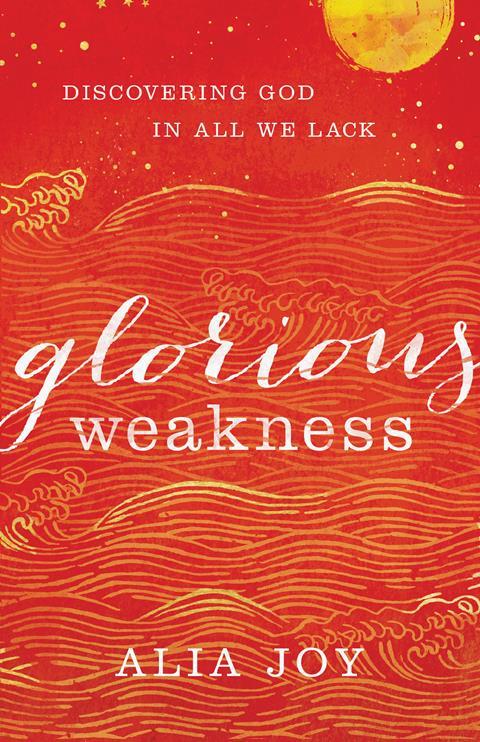
Where is God when we suffer? Our cries of lament can turn us away from God – but can also help us embrace him in the midst of our pain, writes Amy Boucher Pye. Through our tears and anguish, we come to know that God is right there with us.
Alia Joy’s Glorious Weakness explores finding God in our suffering. Her words of prose pulse with poetry, catching our attention and then sinking in deeply: “My saltwater tears have mixed with the ash from the Refiner’s fire, and they form the ink to pen my story, a story that helps me find my way to the beauty that was always buried and waiting.” I found myself highlighting so many sentences, as her words are a thing of beauty in and of themselves.
Alia's book centres on four areas: weakness, hope, strength and glory. As she says, “It is my story of discovering God in all the places I thought were lacking – and seeing how he is good when life is anything but. It’s about the cycles we live in and the stuff that happens not only before you believe, but long after, when you realise that believing, hoping, and knowing God isn’t reciting a sinner’s prayer and calling it good. It’s remaining fluent in our language of hope on an expedition that often feels foreign and hostile.”
She writes of living with a bipolar disorder, of the loss of a baby, of her father’s descent into dementia and eventually his death, of experiencing racism, of the struggle of poverty, of battling a sense of being an imposter and not belonging because of not boasting a lot of degrees and awards. We may not have experienced the host of hardships she’s endured, but I’m guessing many of us can relate to feeling like an outsider, or wondering why God seems to have abandoned us, or what our purpose should be.
Alia shares stories from her life and upbringing with her insights about God’s surprising way of redeeming what is weak and seemingly lost. What she’s learned in the dark she offers to us with humility and grace.
Those of us reading her book in Britain may breathe a prayer of thanks for the NHS as we read. Alia has endured many health issues, and at times she didn’t get them treated because she couldn’t afford the fees in her native America.
My only small niggle with the book is how sometimes she’d repeat an idea in various ways throughout a paragraph or two, which could have been trimmed down. But overall her strong writing overcomes that slight criticism, and I highly recommend her book. You’ll find it encouraging and filled with faith and hope – and authenticity.






























